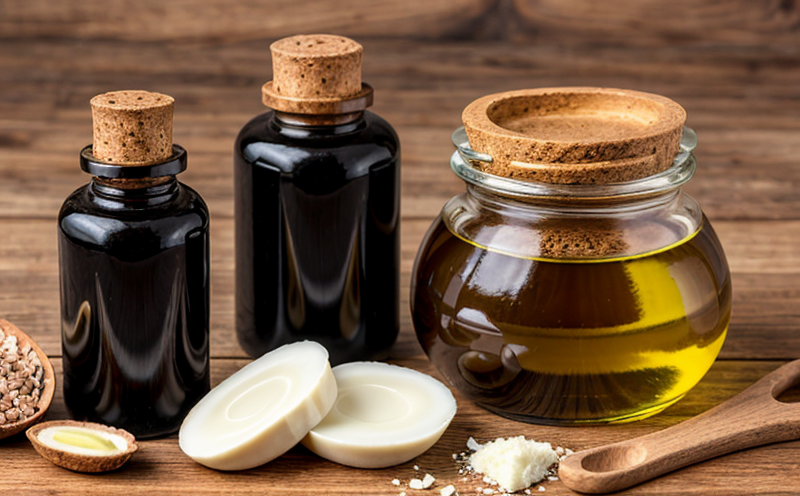ISO 3657 Iodine Value Determination in Fats and Oils
The determination of iodine value is a critical procedure for the quality control of fats and oils. This parameter provides insight into the degree of unsaturation within triglyceride molecules, which directly impacts the stability and shelf life of these products.
ISO 3657 outlines a standardized method that allows laboratories to measure iodine value accurately and reproducibly. The test involves reacting the fat or oil sample with elemental iodine in an acidic medium, followed by titration against a standard sodium thiosulfate solution. The endpoint is typically indicated by starch as an indicator.
This service is essential for food manufacturers to ensure compliance with international quality standards and regulatory requirements. For instance, the oil content of dietary supplements or cooking oils must meet specific criteria to protect consumer health and safety.
Our laboratories are equipped with precision analytical instruments such as burettes, reflux condensers, and titration systems that adhere strictly to ISO 3657 guidelines. Our experienced chemists carefully follow the standard procedure to ensure accurate results every time.
The accuracy of the iodine value is particularly important in sectors like pharmaceuticals where purity and consistency are paramount. Incosistent iodine values can indicate contamination or adulteration, which could compromise product integrity.
Scope and Methodology
| Parameter | Description |
|---|---|
| Sample Preparation | The sample is first refluxed with a mixture of iodine and potassium iodide in an acidic medium. The reaction allows the iodine to react with the unsaturated bonds within triglycerides. |
| Titration | After reaching the endpoint, the excess iodine is titrated against a standardized sodium thiosulfate solution. The amount of iodine consumed directly corresponds to the iodine value. |
| Standardization | The accuracy of this method relies on precise standardization of reagents and careful control of reaction conditions. |
The process is subject to strict adherence to the ISO 3657 standard, which specifies the use of potassium iodide and sulfuric acid solutions with known concentrations. The titration endpoint is visually determined using starch as an indicator.
Our laboratories ensure that all reagents are of high purity and meet the specifications outlined in the standard. This includes precise control over temperature, pH, and reaction time to achieve consistent results.
Customer Impact and Satisfaction
The accurate determination of iodine value is crucial for food manufacturers as it ensures that the product meets quality standards and regulatory requirements. This service directly impacts customer satisfaction by providing reliable data on the purity and composition of fats and oils.
For instance, in the pharmaceutical sector, accurate iodine values are essential to ensure that dietary supplements or cooking oils used in formulations meet strict quality control benchmarks. Inconsistencies can lead to product recalls and potential legal issues.
- Promotes consistent product quality
- Ensures compliance with international standards
- Aids in the identification of adulteration or contamination
- Maintains customer trust through reliable data reporting
Environmental and Sustainability Contributions
Determining the iodine value of fats and oils plays a role in sustainable practices by ensuring that only high-quality raw materials are used. This reduces waste and minimizes the environmental impact associated with production.
- Avoids the use of substandard or adulterated ingredients
- Supports traceability and transparency in supply chains
- Promotes efficient resource utilization





